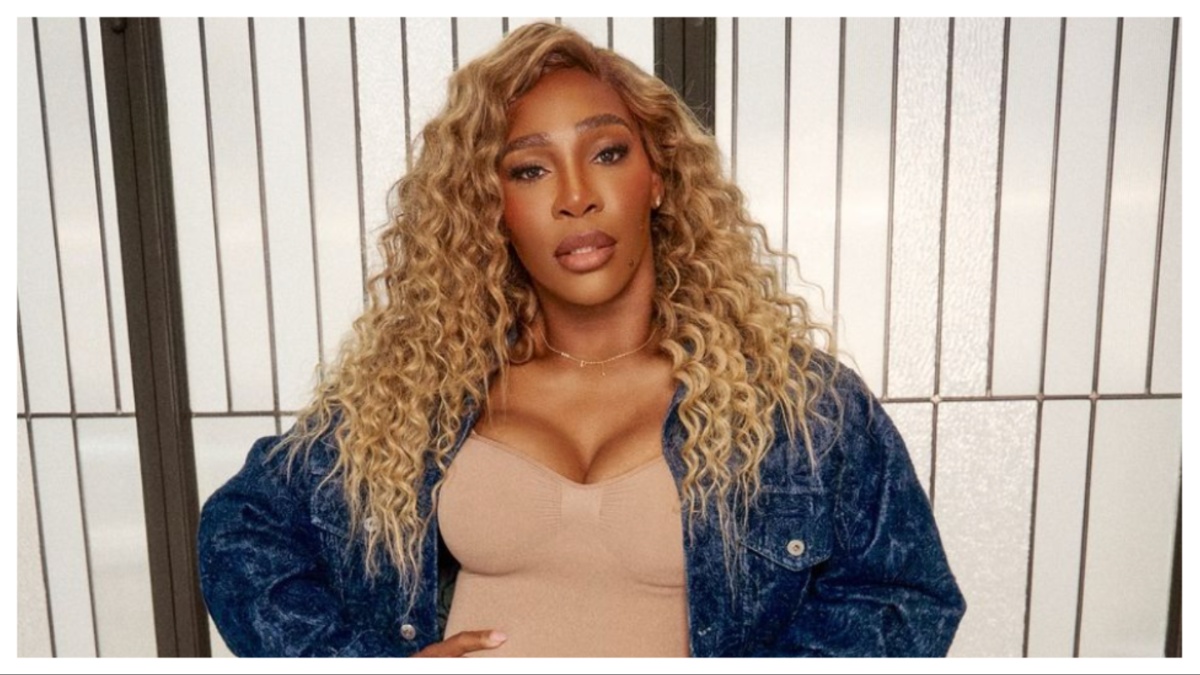‘Aint She Rich Enuf?’: Serena Williams Under Fire as the FDA Steps In Following ‘Misleading’ Commercial for Migraine Medicine Maker
A migraine medicine once-endorsed by Serena Williams has come under fire amid claims advertisements oversold it’s usefulness.
Last month, on Aug. 29, the Food and Drug Administration notified pharmaceutical manufacturer AbbieVie that a commercial starring the tennis phenom for its prescription medicine Ubrelvy was misleading.
The federal agency took issue with an advertisement that was circulated four years ago. Around that time, Williams revealed she had long suffered with chronic migraines throughout her career in sports.
She touted the drug as a source of “relief” as she juggled being a first-time mother to then-toddler daughter Olympia Alexis Ohanian, wife, businesswoman, and navigating the pandemic lockdown.
“I don’t know if I’ve had any migraine attacks since I’ve started taking Ubrelvy, to be honest,” she told People in April 2021. “And thank goodness, because they’re debilitating and it can be really awful to deal with,” she added.
The FDA argues that AbbieVie used Williams’ celebrity status to amplify misleading representations of the medicines ability to treat debilitating headaches.
The agency highlighted scenes from a commercial that depicted the 23-time Grand Slam champion as suffering from a migraine while in a talk show dressing room. A hallway with glaring lights turns into a blue path that she walks down with ease while holding up a 100 mg packet of the medication.
“When migraine strikes, you’re faced with a choice. Ride it out with the tradeoffs or treating? Or push through the pain and symptoms?” says Williams in a voiceover. “With Ubrelvy, there’s another option. One dose works fast to eliminate migraine pain,” she continues.
As the commercial goes on, she is ultimately seen laughing and smiling with no pain. The FDA pointed out that a storyboard detailing the advertisement did not indicate the time lapse between the opening scenes and those of Williams experiencing relief.
Other advertisements showed Williams doing a boxing workout, playing tennis, and stuck in traffic when she reaches for the 100 mg pack to ease her troubles. “Aint she rich enuf???? why she sellin drugs?” wrote someone on YouTube, where archives of her partnership with AbbieVie can be found.
Today my neurologist was like “this migraine medication is the lady Gaga one and this one is the Serena Williams one” and it was a dark moment in medical history
— ali segel (@OnlineAlison) February 5, 2024
Elsewhere on Twitter, someone else described the use of celebrities to push drugs as a “dark moment in medical history.”
“These claims and presentations misleadingly suggest that Ubrelvy provides greater benefits to patients with acute migraine headaches than has been demonstrated,” wrote the FDA.
They continued, “This compelling before-and-after presentation in conjunction with claims such as ‘One dose works fast to eliminate migraine pain’ and Ubrelvy ‘quickly eliminates migraine pain’ misleadingly suggests that Ubrelvy eliminates migraine pain and symptoms more quickly than was demonstrated in the clinical trials.”
Two separate trials tested the efficacy of the medication, one determining its effect on pain two hours after a single dose of either 50 mg or 100 mg and the other on its ability to dull migraine symptoms such as nausea and light sensitivity with the same control (dosage and time frame).
According to the FDA, the results do not support the display “Some people had pain freedom within 2 hours” and that “One dose works fast to eliminate migraine pain” was a misleading marketing ploy that was not demonstrated during clinical trials. Between 19 and 22 percent of participants experienced the elimination of pain; conversely, 78 to 81 percent of parties did not have that experience after a single dose.
The company was given 15 days post-receipt of the letter to respond to the discrepancies. They could either defend their descriptions of the medication or be required to detail actions to discontinue promotional communications that violate the FD&C Act as well as cease the distribution of Ubrelvy.
Additionally, in a written response, they could also defend the medication against claims that it violated the federal act.
The commercial described in the letter is no longer available for viewing on the prescription drug’s YouTube page, and Williams’ name and likeness have been scrubbed from the Ubrelvy website. However, an Aug. 17, 2020 post that the athlete was paid to share with her millions of Instagram followers still exists with deactivated comments.

